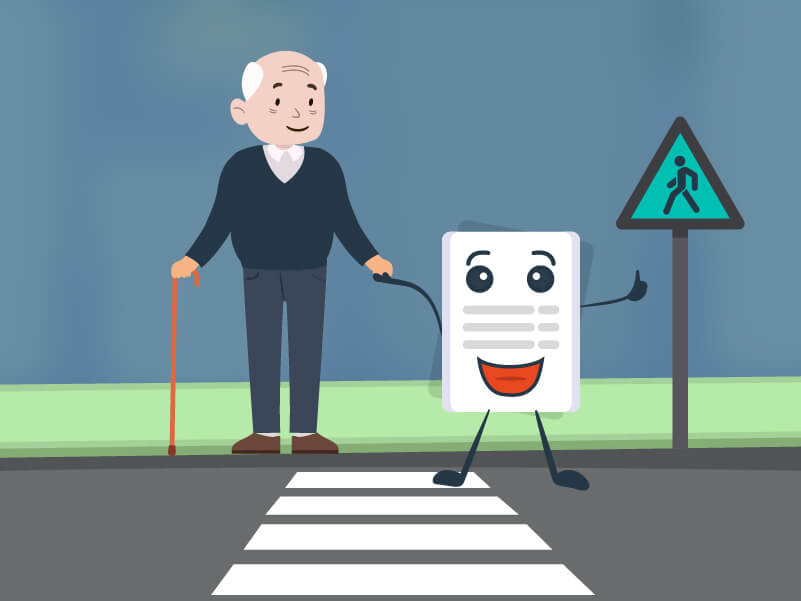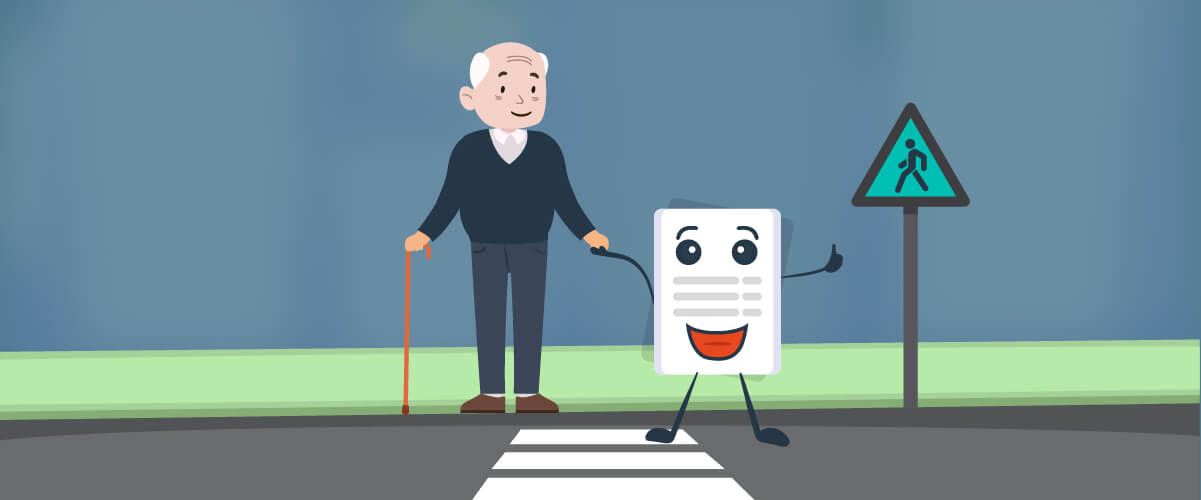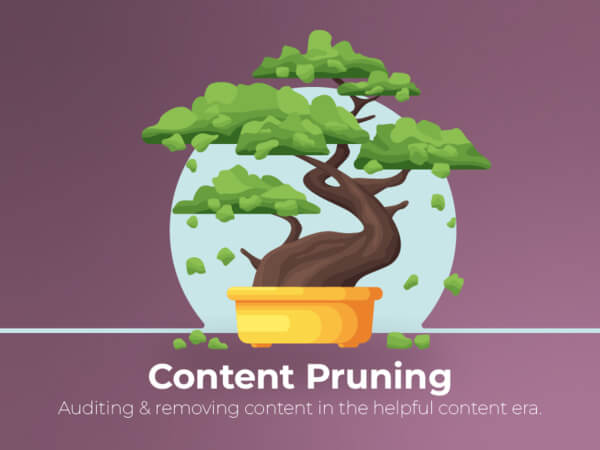On August 18th, 2022, Google announced the “helpful content update” in response to a growing concern over the quality and diversity of search results appearing when people search on Google.
This major algorithm update puts an emphasis on rewarding people-first content that provides a rewarding user experience.
This update continues Google’s pursuit to help “people see more original, helpful content written by people, for people, in search results.”
What is Google’s Helpful Content Update?
Google’s helpful content update aims to help users find more valuable content when searching with Google.
The focus of this update should result in a better experience for both searchers and content creators as Google looks to reward high-quality content that was written by humans to help people.
This algorithm update aims to specially target “content that seems to have little value, low-added value or is otherwise not particularly helpful to those doing searches.”
The Key Takeaways Are:
- Focus on people-first content
- Don’t make content for search engines
- Remove unhelpful content from your website
- Continue to follow the guidelines Google has expressed for years
We’ll dive into these major points later in this article in the ‘What Does this Mean for Your Website’ section.
When Did the Algorithm Drop?
The helpful content update began on August 25th, 2022 and will take roughly two weeks to fully roll out, which would set the initial completion date around September 9th, 2022.
Helpful Content is a Sitewide Signal
The helpful content update introduces a new sitewide signal, meaning the update will not be applied to individual pages, but to the entire website.
So, if your site is deemed to have an overall high amount of unhelpful content or does not satisfy users in a way that meets their expectations, your site could be flagged by this update—thus impacting your overall performance in search.
Who Does this Impact?
The update does not specifically target any particular niche; however, Google did say that due to the content that has historically been created, it stands to impact these types of content the most:
- Online educational material
- Arts & entertainment
- Shopping
- Tech-related content
As of this post, Google says this update will initially impact English-language searches globally that utilize Google Search, however they will look to add this to additional languages and products in the near future.
What Does this Mean for Your Website?
Again, the goal here is to be helpful and create useful, unique, original content or resources for your site.
Since the focus of this algorithm update is centered around content creation, Google has provided a series of helpful questions to ask yourself when writing content for your, or your clients, websites.
People-First Content
Focusing on people-first content has been a staple of reputable SEOs, content creators and agencies for some time now. Google’s continued efforts to reward these practitioners is a welcome update for those individuals and companies.
To help guide professionals and make sure they are on the right path, Google offered a list of six questions regarding building people-first content:
- Do you have an existing or intended audience for your business or site that would find the content useful if they came directly to you?
- Does your content clearly demonstrate first-hand expertise and a depth of knowledge (for example, expertise that comes from having actually used a product or service, or visiting a place)?
- Does your site have a primary purpose or focus?
- After reading your content, will someone leave feeling they’ve learned enough about a topic to help achieve their goal?
- Will someone reading your content leave feeling like they’ve had a satisfying experience?
- Are you keeping in mind our guidance for core updates and for product reviews?
Avoid Search-Engine-First Content
SEO is not a bad thing. Skilled SEO strategies continue to provide value to search engines and users on a variety of levels.
However, content that is created for the sole purpose of trying to rank well within the search results page is hardly valuable for anyone. This content is typically not helpful—often stuffed with keywords, location-based phrases, second-hand experiences, poor user experience, the list goes on and on.
Google provided an additional list of questions for content creators and SEOs to help them avoid developing search-engine-first content:
- Is the content primarily to attract people from search engines, rather than made for humans?
- Are you producing lots of content on different topics in hopes that some of it might perform well in search results?
- Are you using extensive automation to produce content on many topics?
- Are you mainly summarizing what others have to say without adding much value?
- Are you writing about things simply because they seem trending and not because you’d write about them otherwise for your existing audience?
- Does your content leave readers feeling like they need to search again to get better information from other sources?
- Are you writing to a particular word count because you’ve heard or read that Google has a preferred word count? (No, we don’t).
- Did you decide to enter some niche topic area without any real expertise, but instead mainly because you thought you’d get search traffic?
- Does your content promise to answer a question that actually has no answer, such as suggesting there’s a release date for a product, movie, or TV show when one isn’t confirmed?
Removing Unhelpful Content
One suggested method of improving your website’s overall performance is removing the unhelpful content. According to Google,
“Any content — not just unhelpful content — on sites determined to have relatively high amounts of unhelpful content overall is less likely to perform well in Search, assuming there is other content elsewhere from the web that’s better to display. For this reason, removing unhelpful content could help the rankings of your other content.”
This suggested pruning of content is not something that should be taken lightly. There are many factors that should be considered when evaluating whether or not to remove content from your site.
Utilizing tools like Google Analytics and Search Console are a step in the right direction when assessing individual page performance compared to your website’s overall performance.
You should look at metrics like traffic, target keywords, rankings, conversions, sessions duration, and bounce rate to name a few.
You’ll also want to consider the number and quality of backlinks pointing to particular pages before adding URLs to the chopping block.
And remember, just because a page doesn’t rank well, or doesn’t generate a lot of organic traffic, doesn’t mean that the page is not useful. A page could still be valuable to your customers on their path to conversion, even though it is not considered rank-worthy by Google’s standards.
The Road to Recovery
Through the use of a machine-learning model, Google regularly evaluates the content on your website and grades it. These grades will not be made available to webmasters or visible through Search Console. So, you will be left to your evaluations to determine which webpages need refinement or removal.
If the automated model deems a site to have unhelpful content and thus loses position in the search results, the path to recovery could be a somewhat lengthy one—possibly months according to Google.
“A natural question some will have is how long will it take for a site to do better, if it removes unhelpful content? Sites identified by this update may find the signal applied to them over a period of months. Our classifier for this update runs continuously, allowing it to monitor newly launched sites and existing ones. As it determines that the unhelpful content has not returned in the long-term, the classification will no longer apply.”
Essentially, a website that has been impacted by this update will need to prove itself to Google by earning back their trust through the commitment of creating people-first content and discontinuing the production of search-engine-first, or SEO content.
After content changes are made, the review process is still automated (not a manual action) so, it will take some time for Google to reevaluate and regain trust for a website’s content going forward.
Approaching Content Going Forward
This algorithm update should help refocus website content and content creators. By approaching content from a people-first perspective, writers should look to narrow their focus on the content they are creating.
Essentially, staying in your area of expertise, knowing your audience, and writing content that matches the “existing or intended audience for your business or site.” The E-A-T (Expertise, Authoritativeness, and Trustworthiness) update of 2018 feels like it comes into play here as well. This update focused on helping customers feel safe trusting, believing & interacting with the information on your site. Demonstrating E-A-T should continue to help Google define helpful content.
Additionally, focus on creating satisfying experiences for your audience. This involves anticipating your searcher’s intent and sufficiently delivering the information users are looking for—having visitors “feeling they’ve learned enough about a topic to help achieve their goal.”
Wrapping up
The helpful content update is a welcomed opportunity for websites and content creators to step up and deliver valuable content for their audiences.
The objective of writing for humans and creating useful content is bound to impact many websites across the internet and will certainly change the way some marketing agencies and freelancers approach their content strategies going forward.
When implementing a content or SEO strategy for a website, remember to:
- Write content for people, not search engines
- Focus on your audience
- Deliver satisfying experiences
- Answer your users’ questions
- Remove unhelpful content
This is just the introduction or first phase of the helpful content update. Google said, “we will also continue refining how the classifier detects unhelpful content and launch further efforts to better reward people-first content.”
We’ll keep an eye on how this update impacts search going forward.




